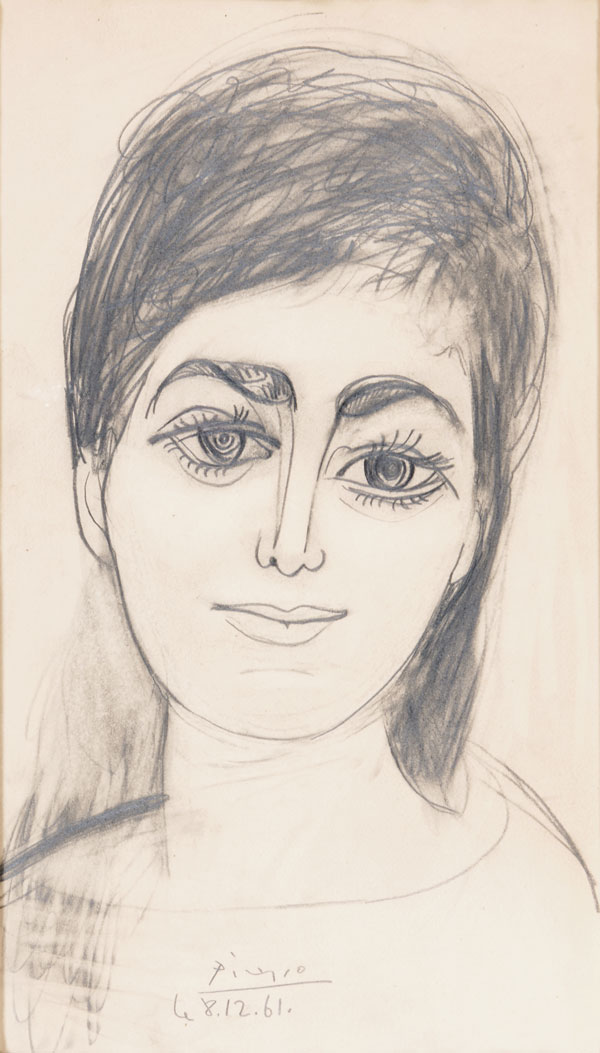Activism in sync with anticolonialism
In 1960, La Nouvelle Critique, the French Communist Party journal with the subhead Revue du marxisme militant, published an issue focusing on Algerian art in which M’hamed Issiakhem (1928-1985) contributed an essay on painting. He pointed out that easel painting had been introduced by the French, and that the Orientalist painters imposed a style whose sources were not Algerian; he also stressed the fact that colonialism was a form of obscurantism. The Algerian avant-garde, in the manner of Issiakhem or Mohammed Khadda, and, over and above them, the whole of Algeria that was fighting for independence, had a powerful emotional link with Picasso. In his painting, Issiakhem's political commitment took the form of fighters, but also that of suffering female figures. As for Khadda, the poster for Chile featured in the exhibition is eloquent in its expression of international solidarity and opposition to dictatorships, regardless of where they may be.
In December 1961, after being contacted by Gisèle Halimi, Picasso drew a charcoal portrait of Djamila Boupacha from a photograph. It was used for the frontispiece of the book by Gisèle Halimi and Simone de Beauvoir published in 1962 by Gallimard. A member of the FLM, Djamila Boupacha belonged to a group of young women fighters accused of having placed bombs in Algiers at locations frequented by the French. She was arrested on February 10, 1960. After being tortured and raped during her interrogation, she was imprisoned and faced a death penalty. The lawyer Gisèle Halimi took on her defense in May of the same year. On June 2, Simone de Beauvoir published an article in Le Monde, "Pour Djamila Boupacha," in reference to the book Pour Djamila Bouhired written by Jacques Vergès and Georges Arnaud. Djamila Boupacha was released on May 24, 1962 without trial, as a result of the Evian agreements.
As evidenced by the many documents he gathered throughout his life, Picasso was close to the struggle of the FLN. Mohammed Khadda wrote about the Algerian scene in his Éléments pour un art nouveau [Elements for a New Art]: "In France, Picasso was accused of being a foreigner; here they accuse us of being Picassos," revealing the formal as well as the existential and political nature of Picasso's affinities with the artists of the Arab world.





 Summary
Summary